 Report Menu
Report Menu
Stakeholder Engagement
At Tata Steel, all stakeholders are treated as partners in our value-creation process. These stakeholders are vital to the business operations of Tata Steel and including their material feedback into our strategy and planning forms the backbone of our value-creation process. Tata Steel seeks feedback from its stakeholders on a regular basis, which is incorporated in the organisation’s overall strategy and planning exercises.
Active stakeholder engagement mechanisms are in place at all stakeholder-sensitive functions, e.g. Investor Relations (Investors), Human Resource Management (Employees), Marketing and Sales (Customers), Procurement (Suppliers), Corporate Social Responsibility (Community), Corporate Communication (Media) and the Resident Executive (Government and Regulatory Bodies). The frequency and forum of engaging with the stakeholders is customised to the needs of the stakeholder and the pertinent business issues of the Company.

Thousand Schools Project, Odisha
The various forums and nature of engagements with our key stakeholders have been listed below, while the engagement with employees has been discussed in the section on people
Our sustainability strategy is founded on a sound understanding of our stakeholders’ issues and concerns and to lend credibility to this, our stakeholder engagement processes were reviewed by independent third-party auditors, PwC, during the materiality exercise of FY 2012-13. The material issues identified during that exercise have been largely addressed. In keeping with the developments in the external environment and evolving stakeholder expectations, we have identified some additional material issues, which are shown in the table alongside. A similar review exercise has been undertaken in the current financial year to capture key elements of our stakeholder engagement processes based on the principles of inclusiveness, transparency and accountability.
Such reviews are essential to enhance the current engagements with our stakeholders and helps in setting in context the most material Environmental, Social and Governance aspects of the business.
Material Economic Issues
- Growth to meet customers’ expectations
- Long-term profitability
Material Social Issues
- Health and safety
- Capability building
- Diversity and inclusion in the workforce
- Impact-based Corporate Social Responsibility (CSR) in community areas in Jharkhand and Odisha
Material Environment Issues
- Greenhouse Gas (GHG) emissions
- Water consumption and effluent discharge
- Resource efficiency
- Biodiversity
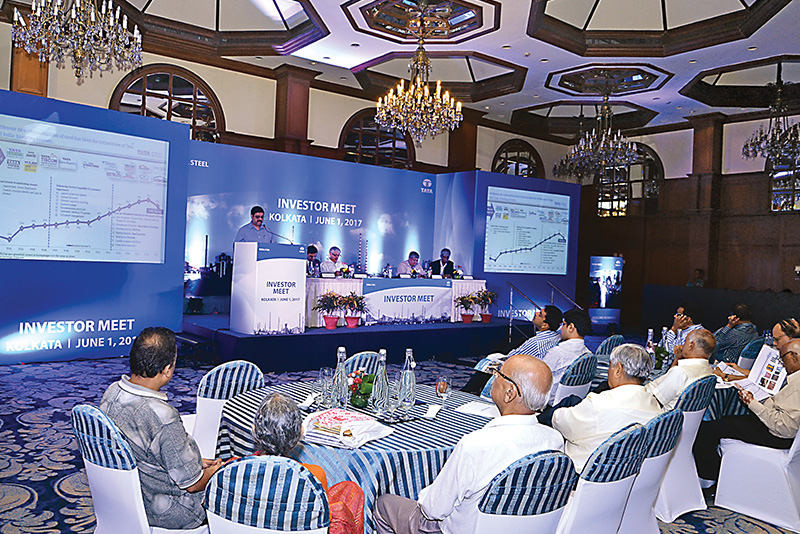
Investor meet in Kolkata
Investors
The Company is committed to excellence in governance and in creating long-term sustainable value.
Why Are They Important
Provide funds for business and growth
Engagement Forum
Investor and analyst meets
Frequency: Quarterly
Annual General Meeting
Key Issues
Strategy, operational and financial performance and outlook
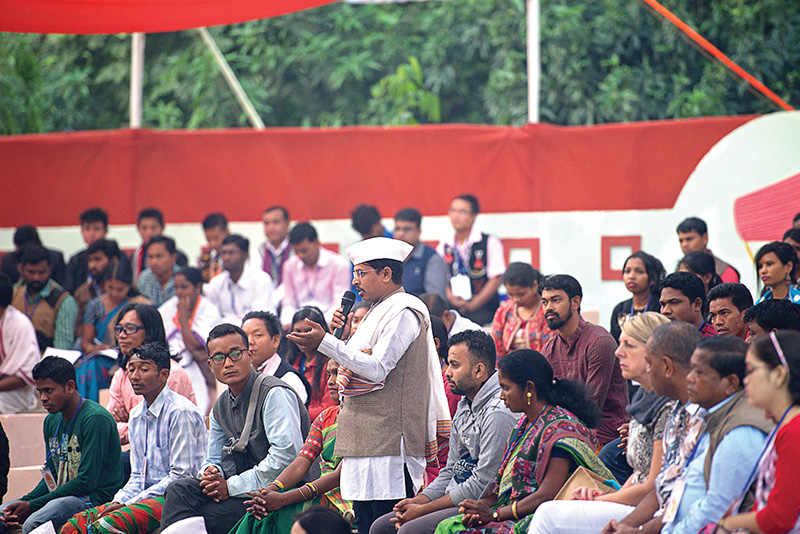
Samvaad Tribal Conclave 2017: Enabling conversations with the community
Community
Our Founder believed that the community is not just another stakeholder in our business, but the very purpose of our existence. Hence, we not only aim to mitigate the negative impacts of our operations on the society, but continuously strive to be a benchmark of corporate citizenship.
Why Are They Important
Community is directly impacted by our operations
Engagement Forum
Public hearings, meetings with community leaders and the CSR Advisory Council
Frequency: Need Based
Key Issues
Health, Education, Livelihood and Infrastructure
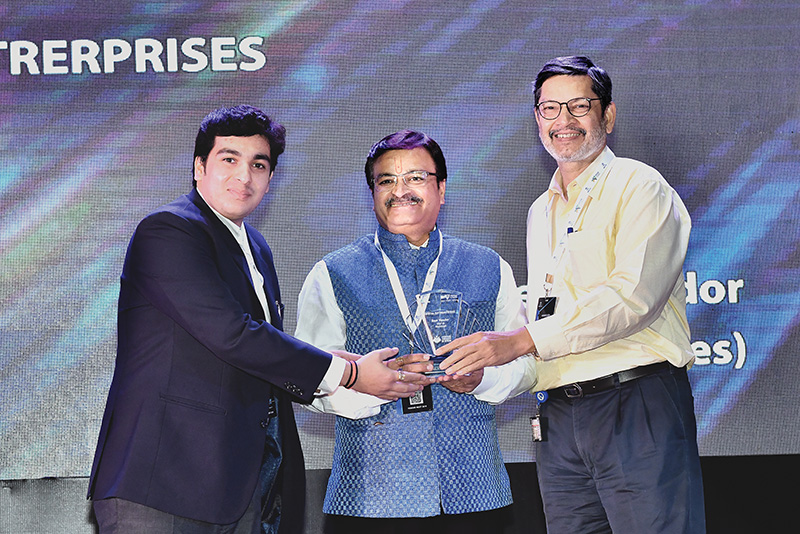
Vendor meet: Strengthening partnerships
Suppliers
The Company ensures a strong relationship with the suppliers across the value chain by engaging with them through satisfaction surveys and issues such as safety, health, ethical practices and environment. There is a focus on developing new and small businesses for suppliers from the underprivileged community and the population that got displaced due to our expansion and to further enable and empower them through training and education. There is a specialised team in procurement called ‘Sathis’ who handhold these vendors for the initial couple of years to help them compete with the other vendors.
Safety, ethics and human rights are the main decisive factors for us to enter into business with suppliers. For ease of doing business and for improving transparency, electronic modes for transactional tasks, such as E-Proc, Easy Buy and Vessel Traffic Service (VTS) Indent System, have been implemented.
Why Are They Important
Provide critical materials and services for our production and delivery
Act as our brand ambassadors
Engagement Forum
Vendor satisfaction survey, Vendor Capability Advancement Programme (VCAP), Vendor Grievance Redressal Committee (VGRC), Speak UP – Toll-free number, transporters’ workshops and meets
Frequency: As per team plan/ Weekly/ Monthly/ Quarterly/ Annual
Key Issues
Joint improvement projects for strategic vendors, ethical practices, safety, health and environment, among others
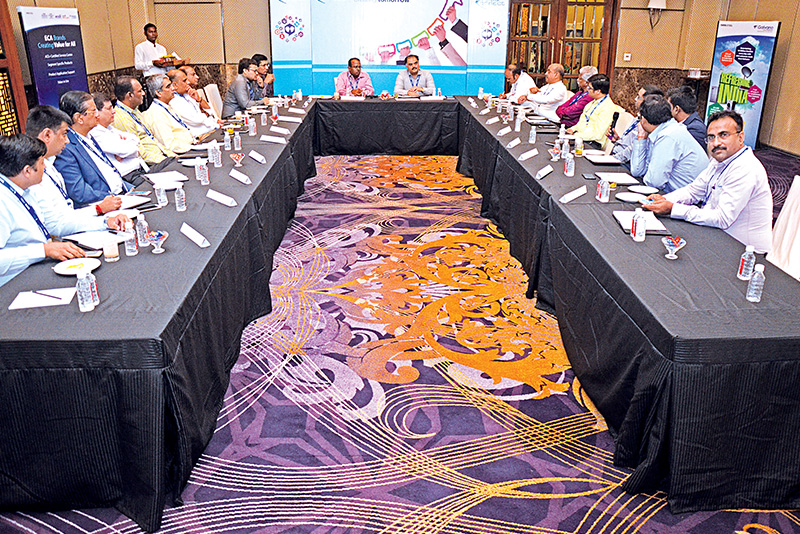
Ecafez: Training and awareness programmes for emerging corporate accounts (ECAs)
Customers
Business-to-Business (B2B), Business-to-Customer (B2C), Emerging Corporate Accounts (ECAs) and Channel Partners
We have customised engagement plans with the different segments of our customers focussed not only on relationship building, capturing business and environmental issues, but also for training, awareness and familiarisation with the Tata Steel culture.
Why Are They Important
Market for our products and revenue generation
Engagement Forum
Specific projects carried out by Customer Service Teams for addressing specific issues on cost, price, delivery or value engineering, multi-stakeholder platforms such as Conference, Construction Conclave, Zonal Meets, Ecafez, Gen Y, ‘Suraksha’ Meet, ‘Parivaar’ Meet, and ‘Wired to Win’, among others.
Frequency: Need based/ As per team plan/ Annual/ Bi-annual
Key Issues
Price, quality, cost and delivery, awareness on specific steel business related trends, safety, and environment, among others.
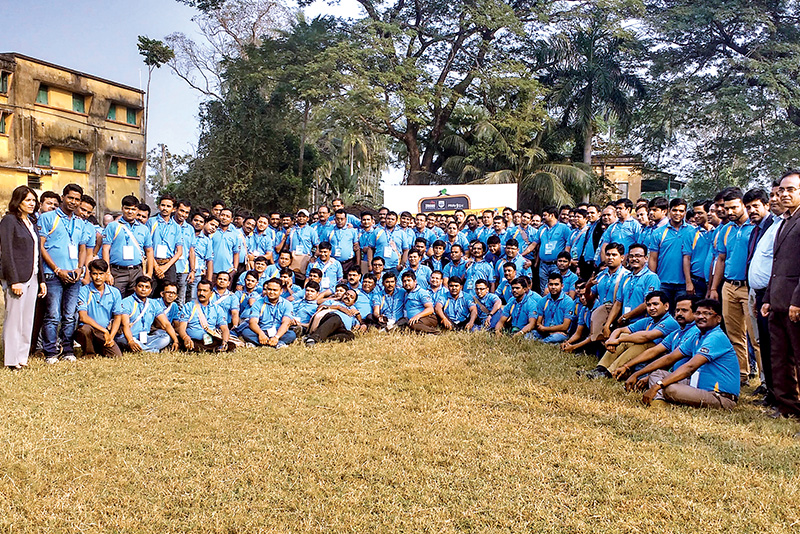
Gurukul: Training and capability development programmes for channel partners
Government and Regulatory Bodies
Tata Steel has always been conscious of being compliant with laws and regulations. We have been ahead of the laws in many people-related initiatives and constantly strive to perform better than the regulatory requirements.
Why Are They Important
Develop legislation and policies that affect our business and have the ability to grant or revoke the licence to operate
Engagement Forum
Meetings and dialogues
Frequency: As per plan
Key Issues
Sanctions, approvals and clearances
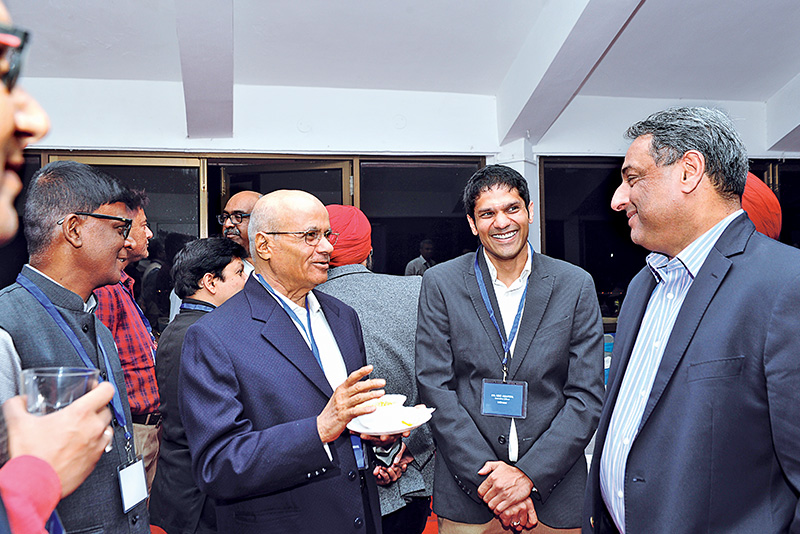
Media meet: Building relationships
Media and Industry Bodies
Integrity is a core value of our Company and is reflected in the transparent and timely manner in which we disclose our performance and other developments to all our stakeholders. We support the steel industry and the country’s development agenda through active participation in national and industry-level activities, policy advocacy and sharing of best practices.
Why Are They Important
Media influences the Company’s brand image and reputation
Industry associations are the route to interact with the industry and the Government
Engagement Forum
Press conferences, media meets, sports tournaments, media dinner events, one-on-one interactions and familiarisation visits
Frequency: Monthly, Quarterly, Annual
Regional and national events such as conclaves and conferences of industry bodies
Senior Management members of Tata Steel as chairs/co-chairs of
various verticals
Frequency: As per plan
Key Issues
Updating stakeholders on corporate
performance
Support towards industry and country-level problems through participation, funding, etc.
